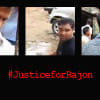'It was the community which made history'

In June 2018, at the age of 29, Doly Begum became the first member of the Bangladeshi expatriate community in Canada to be elected as a member of the Ontario Provincial Parliament (Scarborough Southwest). The New Democratic Party MPP has become an ardent voice of the Bangladeshi immigrant community in Ontario. Mir Aftabuddin Ahmed had the opportunity to sit down with her for a discussion about her views on politics and public life.
You broke the glass ceiling and made history by being the first Bangladeshi-Canadian MPP to be elected in Canada. How has your journey been so far?
I think it was the community which made history. People were celebrating something that had not happened before. Therefore, I cannot and will not take the victory for myself. The entire Bangladeshi community across Toronto came together for a cause that they genuinely believed in, and that in itself is extremely powerful. I had the opportunity to be involved in platforms such as Keep Hydro Public, the Scarborough Health Coalition and various other campaigns as a student of the University of Toronto. Furthermore, as a Bangladeshi-Canadian who witnessed the pros and cons of the healthcare system in Canada, I became invested in the public policy programmes affecting the day-to-day lives of people.
In your conversations with Bangladeshi expatriates, what were the key problems they talked to you about?
The number one issue we are facing here is the fact that people feel left out—there's a feeling among them of being unheard. One of the fundamental factors behind people feeling unheard is affordability. The area which I represent is very diverse in terms of ethnicity, income levels and age groups; there are people living below the poverty line to people who are indisputably affluent. The immigrant community is here for a good life and, in certain cases, with the aim of supporting their families in Bangladesh and other parts of the world. When you do not have enough to support your families here, there is very little that you can send back and that is an area of concern which needs to be addressed. You know, I have had constituents, many from the 55,000 to 60,000-strong community of Bangladeshi immigrants, coming to my office in tears, saying that they have not had a vacation in 12 years. To me these worries depict a broader picture of the kinds of problems immigrant families face in societies they serve with utmost resilience.
An increasing number of international students, including Bangladeshis, are coming to Ontario each year for higher education. The cost of studying in the province for international students is increasing with every passing year. What are your thoughts on this?
It is a big issue, especially now, because of the regressive changes taking place in Ontario's education system. The current conservative government here is framing their decision of reducing funding for post-secondary education in a way in which it will be really difficult for Canadian students to afford studying here. International students will have to make up for the money that institutions lose out on, as lesser funding is available for domestic students. Increasing international student fees to offset these changes is something that major institutions in Ontario have already spoken about. In our election manifesto in 2018, my party promised to institute caps on international student fees. Both the party and I believe that education is a right. When it comes to international students, there is little to no doubt that they are being discriminated against. We are increasingly considering these students as cash cows. Our party aims to make education more affordable for both domestic and international students—accessible education is the only way forward to build a better world for all of us.
People-to-people contact is integral in understanding Canada-Bangladesh relations. And students are at the core of this relationship. Is Canada supportive of the integration of such students into the community?
I am a little critical of our immigration policy. When we attract students to Canada, we attract the very best of minds, who, mind you, get accepted into Canadian institutions on the basis of their own merit. Canadian legislators need to do more to help these students bridge that gap in finding employment post their education. This has been a visible problem for those coming in with student or work visas; we are selecting a breed of top-class individuals, and yet we fail to recognise their credentials.We tell them that they would have to go through another rigorous process of academia or training, even though may already possess the necessary aptitude to be equally qualified for jobs as Canadians. We are telling them that they need to work for a minimum period of time to be eligible to get permanent residency in Canada, but at the same time, we are also creating policies which require them to fulfill certain criteria in order to get such jobs. It breaks my heart to see qualified immigrants, such as doctors, lawyers and engineers, coming to Canada, and driving cabs or performing jobs well below their skill levels. Imagine what they are going through in terms of their mental health. We are creating a system which is ready to fail those people. Then we say that it is an immigrant problem, as they did not contribute to the community. No, it is not them, it is us. We have not done enough to address those problems. These people do not come here for handouts, they need a path for them to flourish, and they will walk that path on their own if given the opportunity.
Bangladesh has taken in over one million Rohingya refugees fleeing persecution in Myanmar. What role is Canada playing in addressing this crisis?
About two years ago, at a rally where we were demanding justice for the Rohingya population, I remember clearly that I met a Rohingya refugee, who currently resides in British Columbia. He said to me that he did not have anyone left in this world. He told me bluntly, "Doly, I wish they had just killed us quickly. If they had just shot us, it would have been easier." What is one supposed to think when someone says something like that? And I remember that day very clearly. We had the Canadian minister of foreign affairs come to the rally. We wanted to use the term "genocide" in our flyers, and you cannot imagine the amount of pushback we had gotten from this very Trudeau government. From my perspective as an MPP, we have not done enough at all. Bangladesh has done a lot for the Rohingya people, even though they do not have the necessary capacity to sustain the large inflow of refugees, but they are still trying. I know it is not perfect, but the fact that they opened their doors to these refugees is amazing and an example for the global community. The amount of time it took the Canadian government to say that what was happening in Myanmar was an act of systematic and targeted genocide was disgraceful. And we should have been more proactive and bold in calling out the Myanmar authorities. We should have called out Aung San Suu Kyi from the very beginning, and this is coming from someone who once had the highest amount of respect for Ms Suu Kyi.
The video of Doly Begum's Parliamentary Statement on Bangladesh's Independence Day can be found here: https://www.facebook.com/watch/?v=823127438053368

 For all latest news, follow The Daily Star's Google News channel.
For all latest news, follow The Daily Star's Google News channel. 








Comments